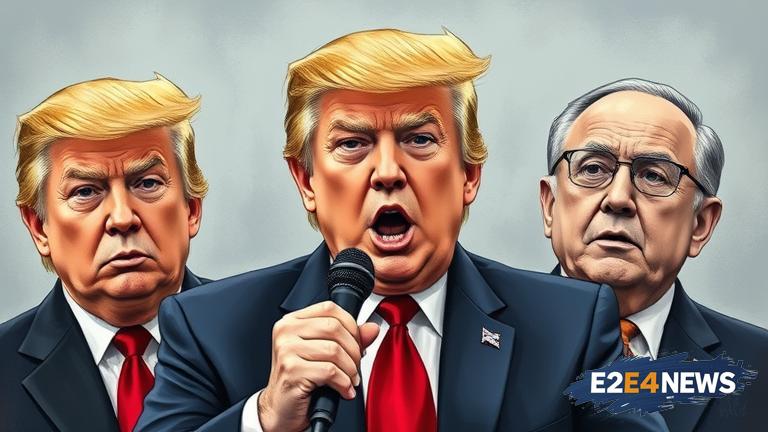A recent development has ignited a firestorm of controversy among MAGA personalities, with many expressing outrage and feelings of betrayal over a new law that targets US states participating in the Boycott, Divestment, and Sanctions (BDS) movement against Israel. The law, which has been met with widespread criticism, aims to punish states that engage in boycotts against Israel by withholding federal funding. This move has been perceived as a direct attack on the sovereignty of US states and their right to make decisions regarding their economic relationships. MAGA stars, who have long been vocal supporters of former President Donald Trump, are now turning against him, accusing him of hypocrisy and betrayal. They argue that the law undermines the principles of states’ rights and freedom of speech, values that have been central to the MAGA movement. The backlash against the law has been fierce, with many MAGA personalities taking to social media to express their discontent and disappointment. They see the law as an attempt to stifle dissent and limit the ability of states to make their own decisions, which they believe is a fundamental aspect of American democracy. The controversy surrounding the law has also sparked a wider debate about the role of the US in international relations, particularly with regards to Israel. Critics of the law argue that it represents a dangerous precedent, where the federal government is seeking to impose its will on states and dictate their foreign policy. This, they argue, is a clear infringement on the rights of states and a betrayal of the trust placed in the federal government. The law has also been criticized for its potential impact on free speech, with many arguing that it seeks to silence dissenting voices and stifle debate. The MAGA movement, which has long been associated with a strong sense of patriotism and nationalism, is now finding itself at odds with the federal government over this issue. The divide between the MAGA movement and the federal government is likely to deepen as the controversy surrounding the law continues to unfold. As the situation develops, it remains to be seen how the MAGA movement will respond to the law and what actions they will take to oppose it. The law has also sparked a reaction from other groups, including civil liberties organizations and advocacy groups, who are concerned about its implications for free speech and states’ rights. The controversy surrounding the law is a complex and multifaceted issue, with different groups and individuals having varying opinions and perspectives. Despite the differences in opinion, one thing is clear: the law has ignited a fierce debate about the role of the federal government in relation to states and the limits of free speech. The law’s impact will likely be felt for a long time, and its consequences will be closely watched by many. The MAGA movement’s response to the law will be an important aspect of this debate, as they seek to navigate the complexities of the issue and find a way to oppose the law while remaining true to their values. The situation is fluid and continues to evolve, with new developments and reactions emerging daily. As the controversy surrounding the law continues to unfold, it is likely that the debate will become even more heated and divisive. The law has also raised questions about the relationship between the US and Israel, and the extent to which the US should be involved in Israeli affairs. The controversy surrounding the law is a reminder that the relationship between the US and Israel is complex and multifaceted, and that there are many different opinions and perspectives on the issue. The law has sparked a wider debate about the role of the US in international relations, and the extent to which the US should be involved in the affairs of other countries. The controversy surrounding the law is likely to continue for some time, and its impact will be felt for a long time to come. The law has also raised questions about the limits of free speech and the extent to which the federal government can impose its will on states. The controversy surrounding the law is a complex and multifaceted issue, with many different aspects and implications. The law has sparked a fierce debate about the role of the federal government in relation to states, and the limits of free speech. The situation is fluid and continues to evolve, with new developments and reactions emerging daily.





